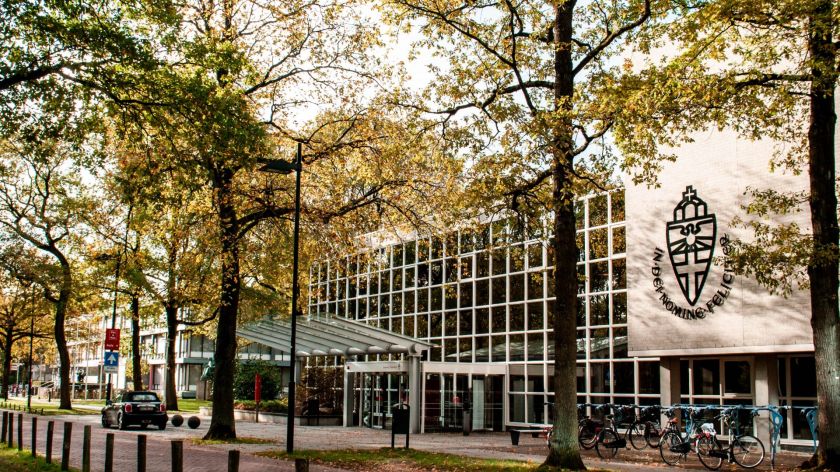FNV biggest party in Works Council, turnout disappointing
-
 De Aula. Foto: Diede van der Vleuten
De Aula. Foto: Diede van der Vleuten
FNV can claim the title of being the biggest party in the Works Council for two years in a row. The voter turnout was disappointing, as was also the case with the student elections. ‘As Works Council, it is our job to make sure everyone knows what we do.’
With eight seats, FNV Education & Research can be called the winner of the Works Council elections. Close runners-up are Algemeen Universitair Belang and education union AOb with six seats each. Promovendi Overleg Nijmegen managed to gain one seat.
‘I am very pleased that we became the biggest party’, says FNV leader Amarins Thiecke at the announcement of the results in the CultuurCafé on Friday afternoon. ‘We have some members from Radboud Services on our list, which may have accounted for the large number of votes.’
It is not yet clear whether Thiecke will once again become chair of the Works Council; the election for the new board is not until September 4th. ‘But I will certainly be running in the election’, as stated by Thiecke. ‘It is usually the case that the chair comes from the largest party.’
‘Massive downwards turn’
The voter turnout for the Works Council election was 28 per cent. While this is double the turnout of the recent student elections, it pales in comparison to the 35.9 per cent achieved in 2019.
‘It is a massive downwards turn’, according to election committee chair Peter van der Heiden, in the CultuurCafé. ‘Something must be done. As Works Council, it is our job to make sure every university employee knows what we do; the board also has their part to play in this.’
Employees could cast their votes via the Internet between June 7th and June 16th, for the first time in four years. Normally, elections are held every two years, but the 2021 elections were skipped, as the number of available candidates equalled the number of available seats.
Starting next academic year, the elected candidates will be joining the University Student Council (USR) and the Executive Board in the University Joint Assembly (UGV).
Translated by Sophie Verhoeven




